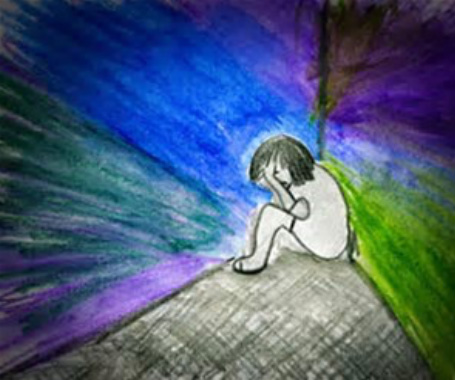-
Understanding and Managing Internal Psychological Trauma
The Changing Face of Trauma

As the world becomes more susceptible to disruption whether this is as a result of a calamitous weather event, terrorism, robbery, political or economic uncertainty, every human is now likely to either witness or be subjected to a traumatic event of some kind, at some stage in their life. Traumatic events can and often do have a profound effect on the people involved. Some people exhibit physical symptoms while others experience the trauma at a deep internal level.
Symptoms of Psychological Trauma
Most people experience strong physical or emotional reactions following a traumatic event. Some individuals experience these symptoms briefly while others continue to address the trauma for far longer. These symptoms can generally be categorised into one or more of the following groups:
Physical: symptoms include excessive alertness, easily startled, fatigue, disturbed sleep, bodily aches and pains or somatic illness.
Cognitive: symptoms include disturbing thoughts and memories of the event, visual recall of the event, nightmares, poor concentration and poor memory and confusion. Behavioural: symptoms include avoidance of places and activities that pose reminders of the event, social withdrawal and isolation, loss of interest in normal activities.
Emotional: Symptoms include fear, numbness and detachment, depression, guilt, anger and irritability, anxiety and panic
Understanding Internal and External Psychological Trauma
While most trauma creates psychological stress for the individual, the treatment thereof is dependent upon whether it is external or internal in nature.
External Trauma
Hlywa and Dolan (2016) consider that external trauma does not accompany the person constantly and is capable of removal if treated appropriately with supportive and re-educative psychotherapy. External trauma can frequently be healed with the removal of the stressor. These stressors could have their roots in physical, socioeconomic, group or personal attacks. When the stressors are removed the trauma subsides, and with time and the assistance of a good psychotherapist, they disappear.
Internal Trauma
Internal trauma is characteristic to the essence of a human being and involves conflicting forces within the individual. Internal trauma is often severe and is Clinical Psychologist Lynda Dolan prevalent in the unconscious. It affects the person’s bodily health and is not likely to be remedied by counselling. Therefore it requires deeper psychotherapy which may include hypnosis.Through psychotherapeutic facilitation the person is provided with the opportunity to revise their attitude towards themselves and the environment and make more effective decisions.
The Psychological Management of Internal Trauma
The most appropriate approach to internal trauma is a stable and sound psychotherapeutic relationship where the patient introduces and reveals experiences to the therapist which the patient is ‘hiding’ from themselves at a conscious level. Internal trauma is much more complex to manage and treat. This requires skilled and concentrated effort to uncover the genesis of the trauma and facilitate its appearance in therapy, in order to deal with it in an appropriate and proper analytical process. Carl Gustav Jung considered that whatever opens the capacity of a person to analyse anything, loses its mysterious power. Internal trauma has the capacity to defend itself using psychosomatic symptoms which serve the individual as ‘defence mechanisms’. It is important to note that any defence mechanism should not be removed prior to the treating therapist establishing that the patient’s ego will not be harmed further by the removal of the symptom.
Examine physical tissue pathology

It is important to conduct a proper investigation and appreciation of whether a stipulated psychosomatic condition is connected to tissue pathology. If this is indeed the case, then treatment within an appropriate medical realm is required.
Closing thoughts
It can be assumed that most human beings are emotionally moved by witnessing death or suffering. With this in mind and against the background of our ever disruptive environment within which we all live, internal injuries are likely to occur on an ever increasing scale. This article endeavours to introduce the concept surrounding the differentiation of internal and external trauma in the hope that it assists medical and allied health practitioners in developing an appropriate understanding of this approach to the treatment of trauma. Lynda is available to conduct further discussions and / or workshops if required. Alternatively, if you would like to obtain further information about this topic, please contact Lynda to arrange a confidential discussion.
About Lynda
Lynda Dolan is a Clinical Psychologist in private practice in Mosman, NSW. She has been in practice for more than 20 years and consults adults, adolescents, children and families. Lynda has assisted clients with a wide range of personal and professional issues from a psychotherapeutic and hypnotherapeutic approach. She may be contacted as follows:
Phone: 02 9960 8875
E-mail: therapist@lyndadolan.com
Website: www.lyndadolan.com




